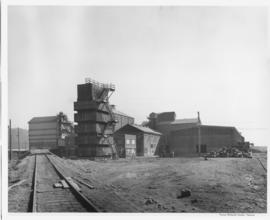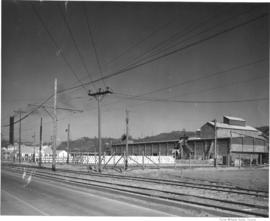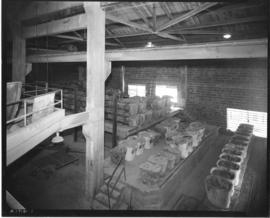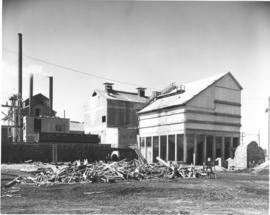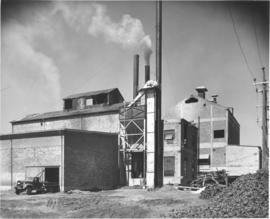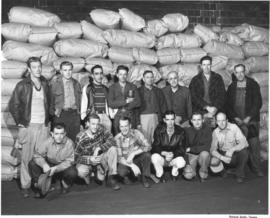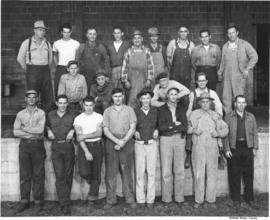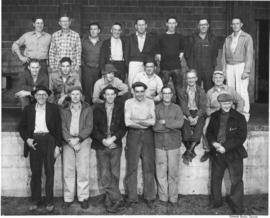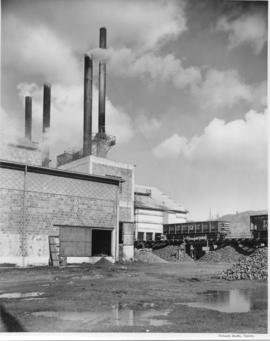- Item
- 1944-03-06
Part of Richards Studio Photographs
Pacific Carbide exterior and interior for record. On March 4, 1944 E. F. Goodner of Pacific Carbide & Alloys Co. announced that the plant would close down for an indefinite amount of time. The plant employed 65 people. Exterior view of plant.
Coke industry--Tacoma; Pacific Carbide & Alloys Co. (Tacoma);
